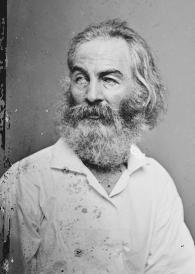Doctor Samuel Alexander Mudd was the physician who treated assassin John Wilkes Booth’s broken left leg after Booth shot President Abraham Lincoln. Booth had broken his leg when he leapt onto the stage from the presidential box at Ford’s Theatre after shooting Lincoln in the back of his head. Booth then fled on horseback.
Early the next morning on April 15, 1865 Booth and David Herold, an accomplice in the assassination, had made their escape into Maryland where they called on Dr. Samuel Mudd to treat Booth’s broken leg. Mudd was an acquaintance of the well-known and popular actor Booth. Booth and Herold then stayed briefly at the Mudd house before continuing on in their escape to Virginia. John Wilkes Booth was eventually shot dead by pursuing Union soldiers in a Virginia barn.
In 1865, a jury of Army officers convicted Mudd and seven others in the plot to assassinate President Abraham Lincoln. David Herold was one of the four hanged (along with Mary E. Surratt, Lewis T. Powell, and George A. Atzerodt) on July 7, 1865 for conspiracy in Abraham Lincoln’s assassination.
Dr. Samuel Mudd was found guilty of conspiracy but was spared the hangman’s noose by one jury vote. Dr. Samuel Mudd was sentenced to life imprisonment at Fort Jefferson. Fort Jefferson, with sweltering conditions of heat and humidity, was a harsh place to be imprisoned, it being approximately 70 miles west of Key West, Florida in the Dry Tortugas. President Andrew Johnson pardoned Mudd in February, 1869 and on March 8, 1869 Dr. Samuel Mudd was freed from the prison. During Dr. Mudd’s time at Fort Jefferson he helped stop the spread of a yellow fever epidemic that had ravaged through the prison.
There has been continuing controversy about whether or not Dr. Samuel Mudd was involved in the assassination conspiracy, or was only a country doctor helping a man with a broken leg. Doctor Mudd’s guilt or innocence, in the assassination of Abraham Lincoln is still debated.
In 1992 an administrative board of the Army made the recommendation that Mudd’s conviction be expunged because Mudd was a civilian. However, following Army secretaries and a federal judge, turned down this recommendation. A court decision in November, 2002 dismissed an attempt to have expunged the 1860s military commission conviction of Dr. Samuel Mudd.
Thomas Mudd is the grandson of Samuel Mudd, and he plans to seek a review of the 2002 court decision by the full appeals court. If this fails, Thomas Mudd intends to ask the United States Supreme Court to intervene.
Dr. Samuel Mudd was absolved by President James Earl “Jimmy” Carter in 1979 of involvement in the conspiracy to assassinate President Abraham Lincoln. It is a curiosity that the former television anchorman Roger Mudd, is related to Dr. Samuel Mudd.
